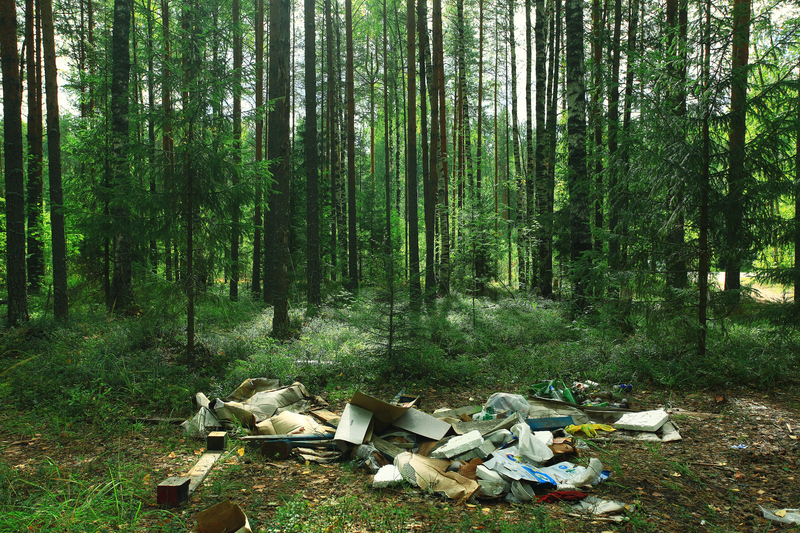In an era marked by increasing environmental awareness and the urgent drive for sustainability, recycling metals emerges as a critical strategy in resource conservation. By repurposing and reusing metals, we not only save energy but also significantly reduce waste and the need for raw material extraction. This comprehensive guide dives into why metal recycling is indispensable for sustainable growth, exploring its benefits, processes, and impacts on the environment.
Understanding Metal Recycling
Metal recycling involves reprocessing used or scrap metal and converting it into new products. This process not only helps in reducing the demand for new metals but also conserves the environment by minimizing pollution levels. Let's delve deeper into how metal recycling works and its significance in today's world.
Importance of Recycling Metals
Metals play an integral role in our daily lives, from the cars we drive to the electronics we use. Thus, their sustainability is paramount. Here are some key reasons why recycling metals is crucial:
- Resource Conservation: Metals are finite resources. Recycling helps conserve these precious materials, ensuring they remain available for future generations.
- Energy Efficiency: Reprocessing scrap metals requires significantly less energy compared to producing new ones from ore. For example, recycling aluminum saves up to 95% of the energy needed for primary production.
- Environmental Impact: Metal extraction and refinement can lead to significant environmental degradation. By recycling, we reduce the need for mining and, consequently, lower our carbon footprint.
- Economic Benefits: The recycling industry creates jobs, stimulates local economies, and reduces manufacturing costs. It's a win-win for both the economy and the environment.

The Metal Recycling Process
The process of recycling metals is intricate yet effective. Below is an overview of the key steps involved:
1. Collection
The first step in metal recycling is the collection of scrap metal from various sources. This can include household appliances, industrial scrap, and even old vehicles. Efficient collection systems, whether through community recycling programs or industrial pickups, ensure that valuable metals are not lost.
2. Sorting
Post-collection, metals need to be sorted based on their type and quality. Sorting can be manual or automated, using advanced technologies like magnetic separation for ferrous metals and eddy currents for non-ferrous metals. Proper sorting ensures the quality and efficiency of the recycling process.
3. Processing
Once sorted, metals are shredded into smaller pieces to facilitate easier melting. The shredded metals are then subjected to a melting process in large furnaces. The temperature and time depend on the type and amount of metal.
4. Purification
Purifying metals is essential to remove contaminants and improve the final product's quality. Techniques such as electrolysis are employed to achieve highly purified recycled metals, suitable for various applications.
5. Solidifying
After purification, metals are cooled and solidified. They may be cast into specific shapes, such as ingots, for ease of transportation and manufacturing.
6. Transportation and Manufacturing
The final stage involves transporting the recycled metal to manufacturers who use them to create new products. This final step completes the circle of sustainability, reducing the need to mine and process new metals.
The Environmental Impact of Metal Recycling
The benefits of recycling metals extend far beyond resource conservation. Here's how it positively impacts the environment:
- Reduction in Environmental Pollution: Recycling metals significantly decreases levels of pollution caused by mining and metal refining processes.
- Decrease in Carbon Emissions: By cutting down on the energy required for metal production, recycling helps to minimize greenhouse gas emissions.
- Conservation of Water: Metal production demands substantial amounts of water, a resource already under pressure. Recycling reduces this demand, contributing to water conservation.
- Landfill Reduction: By diverting scrap metals from landfills, recycling helps to conserve land and decrease landfill-associated pollution.
Challenges Facing Metal Recycling
Despite its merits, the metal recycling industry faces several challenges that can impede its progress:
- Contamination: The presence of non-metallic materials can contaminate scrap metal, complicating the recycling process.
- Cost Implications: High costs associated with collecting, sorting, and processing can deter effective recycling operations.
- Lack of Public Awareness: Insufficient knowledge about recycling benefits or proper disposal practices can hinder metal recycling efforts.

How You Can Contribute to Metal Recycling
As individuals, we hold the power to influence the success of metal recycling initiatives:
- Segregate Waste: Ensure that you separate metals from other waste materials to aid in effective recycling.
- Support Recycling Programs: Participate in or organize community recycling projects to increase awareness and efficiency.
- Advocate for Policies: Urge policymakers to implement and enforce laws that support and promote metal recycling.
- Educate Others: Spread information about the importance and benefits of recycling metals within your community or workplace.
The Future of Metal Recycling
Looking ahead, advancements in technology promise to revolutionize metal recycling. Innovations like AI-driven sorting, blockchain for tracking materials, and improved purification technologies stand to elevate the industry. By embracing these developments and fostering global cooperation, we can fortify our commitment to sustainability and resource conservation.
In conclusion, recycling metals is not just a matter of resource conservation but a significant step towards maintaining ecological balance. Every piece of recycled metal represents energy saved, a tree left standing, and a planet inching closer to sustainability. As guardians of our Earth, it's imperative to perpetuate and innovate within this crucial sector, ensuring a future where natural resources remain abundant and thriving.